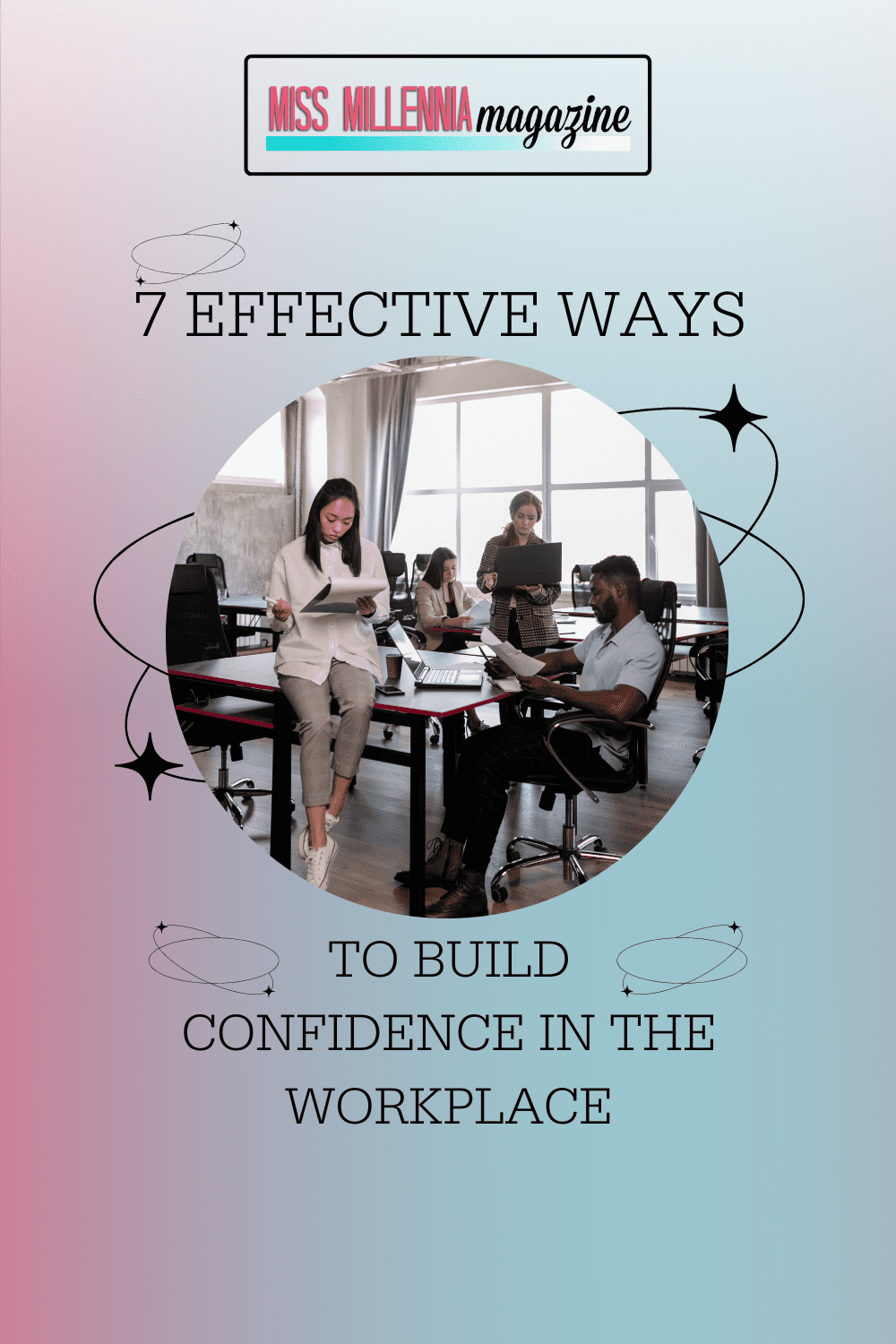10 Important Issues Single Women Face (And How to Combat Them)

Being single can be an empowering and fulfilling life choice for many women. However, single women face unique challenges in various aspects of their lives. From navigating social stigmas to dealing with financial issues, addressing these concerns and finding effective ways to combat them is essential.
This article will explore ten critical issues that single women often encounter and provide practical strategies to overcome them. Whether you’re a single woman or seeking to understand the experiences of single women in your life, this guide aims to offer valuable insights and solutions.
Single Life: Embracing Independence and Happiness
Living a single life can offer numerous advantages, including the freedom to pursue personal goals, explore new experiences, and focus on self-development. However, societal pressures and expectations may make some single women feel inadequate or incomplete. It’s essential to **embrace the independence and happiness** that come with being single, recognizing that being in a relationship is not the only path to fulfillment. Developing a positive mindset, engaging in self-care activities, and setting personal goals can help single women thrive in their journeys.
Relationship Status and Social Stigmas
Society often places undue importance on relationship status, leading to social stigmas and judgments against single women. While it’s crucial to challenge these stereotypes, it’s equally essential for single women to **cultivate self-confidence** and assert their worth beyond their relationship status. Surrounding oneself with supportive friends and family who value and respect individual choices can help combat the adverse effects of social stigma.
Financial Challenges: Gender Wage Gap and Economic Risk
Single women often face financial challenges, including the **gender wage gap** and **economic risk**. The gender wage gap refers to the disparity in earnings between men and women, which can impact a single woman’s ability to save, invest, and achieve financial stability. To combat this issue, single women can **educate themselves about negotiating salaries**, seek professional development opportunities, and advocate for equal pay in the workplace. Additionally, building an emergency fund and investing wisely can help mitigate economic risks.
To address the issue of the gender wage gap, single women should take proactive actions to empower themselves financially. One critical step is educating them on compensation bargaining approaches and strategies. Single women can boost their chances of getting better salaries by arming themselves with knowledge about fair compensation and arguing for their worth. Seeking out professional development possibilities, such as attending workshops or seeking extra education, can also help to improve skills and qualifications, making them more marketable.
Another essential part of reducing the gender wage gap is advocating for equal compensation in the workplace. Single women can participate in or support organizations that promote gender equality, advocate for legislative reforms and raise awareness about wage inequities. Single women can help to create a fairer and more equitable work environment by banding together to resist discriminatory practices.
Aside from the salary disparity between men and women, unmarried women confront economic risks that can jeopardize their financial stability. Unemployment, unexpected medical bills, and other unforeseen occurrences can all be economic hazards. To reduce these dangers, single women should take proactive measures such as saving for an emergency. An emergency savings account can give a financial cushion during difficult times and lessen the need to rely on credit or loans.
Prudent investing is another method that can help single women manage economic dangers and achieve long-term financial security. Single women might grow their wealth and secure their financial future by seeking professional counsel, learning about investing possibilities and developing a diversified investment portfolio.
Balancing Career and Personal Life
Finding a balance between a successful career and personal life is a common challenge for single women. It involves effectively managing work responsibilities, personal commitments, and self-care. To achieve this balance, single women must establish boundaries, prioritize their well-being, and practice effective time management strategies.
Establishing boundaries is crucial in maintaining a healthy work-life balance. Single women should clearly define and communicate their limits to their colleagues, supervisors, and clients. This can involve setting realistic expectations for work hours, availability outside work, and personal time. Establishing boundaries allows single women to create space for individual activities, hobbies, and relationships outside of work, promoting overall well-being.
Prioritizing well-being is essential for single women striving for work-life balance. It is important to recognize that personal needs and self-care should not be compromised for career success. Single women should make time for activities that promote physical and mental health, such as exercise, relaxation techniques, hobbies, and spending quality time with loved ones. Taking care of oneself is crucial for maintaining energy, motivation, and overall satisfaction in both professional and personal spheres.
Effective time management is a crucial skill for achieving work-life balance. Single women can benefit from prioritizing tasks, setting realistic goals, and managing their time efficiently. This may involve organizing schedules, creating to-do lists, and utilizing productivity tools or techniques. By effectively managing their time, single women can reduce stress, increase productivity, and create space for personal activities and self-care.
Creating a support system of friends, family, or mentors is invaluable for single women in maintaining a healthy work-life balance. These individuals can offer guidance, understanding, and practical assistance when needed. Supportive relationships can provide perspective, accountability, and encouragement in navigating the challenges of managing a career and personal life. Seeking advice or mentorship from experienced professionals can also offer valuable insights and strategies for achieving balance and success.
In short, finding a balance between a successful career and personal life is a common challenge for single women. Juggling work responsibilities, personal commitments, and self-care can be demanding. It’s important for single women to **establish boundaries**, prioritize their well-being, and practice effective time management. Creating a support system of friends, family, or mentors can provide valuable guidance and assistance in maintaining a healthy work-life balance.
Cultural Norms and Expectations
Cultural norms and societal expectations play a significant role in shaping the experiences of single women. Different cultures may strongly emphasize marriage and starting a family, which can create pressure and potentially lead to feelings of inadequacy or judgment for single women. Recognizing and challenging these cultural norms is essential, allowing single women to embrace alternative paths to happiness and fulfillment.
For example, the cultural expectation of marriage and committed relationships has been deeply ingrained in the United States. However, in the past decade, there has been a rise in the number of single women, including those who choose to remain single, are focused on their careers, or prefer non-traditional family structures. This shift challenges the notion that marriage is the ultimate goal or necessary for a fulfilling life.
According to reports from the U.S. Census Bureau, more women than ever choose to stay single or delay marriage. Various factors influence this trend, such as increased access to higher education, career opportunities, and a desire for personal independence. It is essential to celebrate and support the choices of single women, recognizing that happiness and fulfillment can be achieved through diverse paths, not solely through romantic relationships or marriage.
Creating a supportive community that embraces individual choices is crucial for countering the influence of cultural expectations. Surrounding oneself with a diverse group of friends, family, and like-minded individuals who respect and celebrate different life paths can provide a sense of validation and empowerment for single women. This community can help challenge societal norms and offer a supportive environment where individual choices and preferences are valued.
It is worth noting that cultural norms and societal expectations can vary across different demographics and communities. Age, education level, and socioeconomic status can influence how cultural expectations impact single women’s experiences. For example, younger women may face pressure to prioritize education and career over marriage, while older women may face different expectations related to family and marriage.
In recent years, there has been a growing recognition of the gender differences and inequalities that single women face, such as the gender pay gap, limited access to affordable childcare, and higher poverty rates among single mothers. Efforts are being made to address these issues and create a more inclusive society that supports all individuals, regardless of their marital status.
Parenting as a Single Mother
When it comes to raising children independently, single women confront a unique set of problems without the assistance of a partner. It can be daunting to juggle the demands of employment, caring for one’s children, and maintaining one’s health and wellness. Still, ways and resources are available to assist in overcoming these obstacles.
The balancing act of maintaining a career while still being responsible for childcare is one of the most significant obstacles that single mothers must surmount. It can be challenging for single mothers to balance the demands of their careers and the requirements of raising their children independently.
This can tax both their bodies and their emotions because, in addition to satisfying their professional commitments, parents are responsible for ensuring their children receive enough care. As a result of the fact that they are alone responsible for meeting the requirements of their children, single mothers may also experience difficulties in their financial situations.
Finding local assistance and resources can be of excellent service to women raising their children alone. Helpful help and a sense of belonging in a community are two things that can be provided by organizations like community centers, social service organizations, or support groups that are established expressly for single mothers.
These resources may provide practical support in the form of helpful aid, such as access to reasonably priced childcare alternatives, parenting classes, or guidance in navigating the many government assistance programs. They may also offer psychological assistance through counseling services, peer support groups, or mentoring programs, all of which allow single mothers to network with others coping with similar issues.
Single mothers must cultivate reliable friends and family members who can assist whenever required. The challenges of being a single parent can be made easier to manage with the help of a strong support network. Dependable people can help a single mother with her childcare responsibilities, which will free up some of the mother’s time so that she can focus on her own needs or fulfill her professional obligations.
When it is required, they can also provide emotional support, an ear to listen, and counsel. Forming these sturdy ties is necessary for establishing stability and assuring the single mother will always have someone she can rely on when things are difficult.
Single mothers must prioritize their self-care and overall well-being and actively seek help from others. If a single mother takes the time to care for herself, she will be better positioned to meet the challenges of being a mom and a working professional.
This can include making time in your schedule for activities encouraging self-care, such as exercise, hobbies, relaxation techniques, or engaging in things that offer joy and fulfillment. Checkups at the doctor’s office should be scheduled consistently, and single mothers should visit a doctor whenever they feel they have a medical problem that requires treatment.
Maintaining Physical and Mental Health
Many women who live alone must face the challenge of preserving one’s physical and emotional health. Taking action to conquer this challenge is necessary to live a satisfying and well-balanced life. The following is a discussion of some essential elements to consider and solutions to address these problems.
Self-care and putting one’s own needs first are two essential components. When a woman lives alone, she frequently has a lot of obligations, and she could end up neglecting her health as a result. It is of the utmost importance to prioritize self-care and schedule time for activities that benefit one’s physical and mental health. This can include participating in regular physical activity, obtaining enough sleep, practicing relaxation techniques, and establishing limits to ensure adequate amounts of personal time.
In addition to this, it is essential to adopt a healthy way of life. Focusing on eating well, staying hydrated, and avoiding excessive intake of alcohol or other substances that may hurt one’s physical and mental health are all important things that single women can do for themselves. Regular checkups at the doctor’s office and other preventative healthcare measures are also essential.
It is highly beneficial for single women to cultivate a support network of friends, family, or support groups. It can significantly contribute to maintaining one’s physical and mental well-being by surrounding oneself with positive and uplifting individuals who encourage good practices.
Stress management is crucial. Various challenges may be specific to the life of a single woman, such as the obligations of work or the absence of a romantic companion. The practice of stress management strategies such as meditation, exercises involving deep breathing, or the pursuit of hobbies can help alleviate stress and increase mental well-being.
If feelings of anxiety, depressive disorders, or other mental health difficulties last for an extended period, it is imperative to seek the assistance of a trained expert. A consultation with a therapist, counselor, or healthcare provider can provide direction, support, and appropriate treatment alternatives adapted to the individual’s needs.
Building Strong Support Networks
Emotional support is crucial for single women, who may encounter different obstacles and go through different experiences than other women. During challenging times, having a solid support network of friends, family, and others with similar perspectives and values can provide a secure environment to voice one’s feelings, seek advice, and get encouragement. By giving understanding, empathy, and a listening ear, emotional support can help lessen feelings of loneliness, isolation, and stress.
Providing valuable aid in everyday situations is another important function of support networks. Many different responsibilities and chores must frequently be handled independently by women who live alone. A network of people who provide emotional support can significantly assist in performing day-to-day activities such as caring for children, maintaining a household, or running errands. This aid makes the weight easier to bear while also providing single women with a support structure on which they can rely in times of need.
Meaningful interactions help to cultivate a sense of belonging in their participants. A sense of community and acceptance can be fostered by developing connections with people who share similar interests, including friends, family, and others. Being a part of a supportive network offers a sense of identity, the opportunity to share experiences, and social connections, all of which can significantly contribute to an individual’s overall well-being and happiness.
It has been suggested that effective ways to build these valuable connections include participating in social activities, joining interest organizations, and participating in volunteer work in the local community. Single women can meet new people and broaden their social circle when participating in social activities.
By joining interest groups aligned with one’s hobbies, passions, or professional interests, one can increase their opportunity to interact with like-minded others who share similar experiences and values. Volunteering in the community gives single women a chance to give back and have a positive impact and allows them to meet other people enthusiastic about causes similar to theirs.
Addressing Gender Inequality
The term “gender inequality” refers to the unequal chances and treatment people face based on gender. Gender inequality persists in many facets of society despite enormous advances in recent years. Due to societal norms, preconceptions, and biases, single women may experience specific difficulties and restrictions.
Promoting gender equality is essential for addressing these problems. In advocacy, one actively supports and promotes equal opportunities and rights for all people, regardless of gender. This can be accomplished in several ways, including participating in discussions and debates, running public awareness campaigns, and financially supporting organizations and projects promoting gender equality.
Participating in conversations about gender inequality is an excellent approach to spreading awareness. People can share their thoughts, experiences, and information regarding the effects of gender inequality by having dialogues with family, friends, coworkers, and other community members. These conversations support dismantling preconceived notions and stereotypes, foster compassion and understanding, and inspire constructive change.
Creating awareness is yet another crucial component of promoting gender equality. It entails bringing attention to the problems and injustices experienced by single women and other underrepresented groups. This can be accomplished in several ways, including social media campaigns, event planning, workshop planning, article writing, blog authoring, and public speaking. The objective is to raise public awareness of the importance of gender equality and its advantages to society.
It’s also essential to assist groups that promote gender equality. Numerous non-profit groups and projects push for policy changes, gender equality, and women’s empowerment. People can support the work of these organizations and help advance gender equality by giving money, giving their time and skills, or actively participating in their programs and activities.
Overall, the text emphasizes how crucial it is to acknowledge and combat gender discrimination, especially for single women. A more fair society for all people can be achieved by promoting gender equality through conversations, awareness-building efforts, and financial support from relevant organizations.
Taking Charge of Financial Planning
Financial planning is managing and organizing your finances to achieve specific goals and secure your future. Single women must take charge of their financial matters to ensure stability and achieve their objectives. By actively engaging in financial planning, single women can gain control over their money and create a solid foundation for their future.
A critical aspect of financial planning for single women is budgeting. This involves creating a detailed plan outlining your income and expenses, allowing you to track your spending and ensure that you live within your means. Budgeting helps you make informed decisions about where to allocate your money and enables you to save for future goals.
Another vital aspect of financial planning is saving. Saving involves regularly setting aside a portion of your income for emergencies, short-term needs, and long-term objectives. This practice helps build a financial safety net and provides a sense of security. It is recommended to save at least three to six months of living expenses in an emergency fund to handle unforeseen circumstances.
Investing is also an essential component of financial planning. By investing, you can potentially grow your wealth over time. It involves putting your money into different types of assets, such as stocks, bonds, real estate, or mutual funds, with the expectation of earning a return. However, it is essential to understand the risks involved and seek professional advice before making investment decisions.
To effectively navigate the world of personal finance, single women must educate themselves about various financial concepts and strategies. This can be done through reading books, attending workshops, taking online courses, or following reputable financial websites. Understanding compound interest, diversification, and risk management can empower single women to make informed financial decisions.
Seeking guidance from financial professionals, such as financial advisors or planners, is also beneficial for single women. These professionals can provide personalized advice based on your financial situation, help you set realistic goals, and develop a comprehensive financial plan. They can offer insights on investment options, tax strategies, retirement planning, and other areas of personal finance.
Conclusion
In conclusion, single women, particularly young women, face many vital issues today. These challenges are evident in their lives, including their economic status, career prospects, relationships, and personal well-being. However, there are ways to combat these issues and empower single women to thrive.
According to the U.S. Census Bureau and recent reports, the number of single women has been on the rise, with higher rates among white women and those with a college degree. The growing number of single women reflects shifting social norms and the changing dynamics of relationships in modern society. One significant issue single women face is the economic disparity they experience compared to their married counterparts.
Studies have shown that single women, especially single mothers, tend to have lower median net worth, household income, and labor force participation rates. This wealth penalty can be attributed to various factors, including gender wage gaps, limited career opportunities, and the financial responsibilities of raising young children alone.
Furthermore, single women often struggle with finding suitable long-term mates, navigating the dating scene, and building intimate relationships. The pressure to conform to societal expectations and the desire for companionship can contribute to relationship issues for single women. Age, sexual orientation, and personal preferences can further complicate the search for a compatible partner.
Another challenge single women face is the lack of social support and close friends. Close friendships and social connections are vital in emotional well-being and personal fulfillment. Without a partner or family structure, single women may rely heavily on their social network for support, making cultivating and maintaining close relationships crucial.







